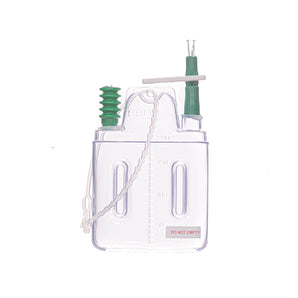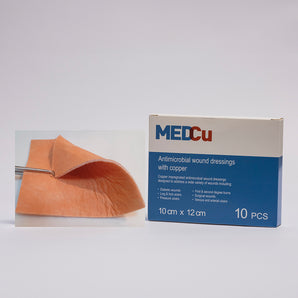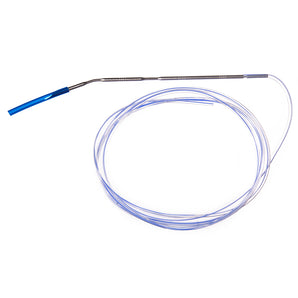When it comes to wound care and surgical procedures, alcohol swabs are essential tools. These small, pre-soaked pads are saturated with isopropyl alcohol, making them highly effective for cleaning and disinfecting the skin. They help reduce the risk of infection by eliminating bacteria and other pathogens from the surface.
In medical settings, we often use alcohol swabs to prepare the skin before injections, blood draws, or minor surgeries. They're also handy for cleaning small wounds and scrapes, ensuring that the affected area is free from contaminants. Understanding their uses can help us appreciate their role in maintaining hygiene and promoting quicker, safer healing.
Key Takeaways
- Essential in Medical Settings: Alcohol swabs are crucial for cleaning and disinfecting the skin before injections, blood draws, and minor surgeries, reducing the risk of infection.
- Versatile Applications: Beyond medical uses, alcohol swabs are effective in cleaning small wounds at home and maintaining hygiene for personal electronics.
- Types and Specialized Uses: Various types of alcohol swabs cater to different needs, such as pre-injection, wound cleaning, and specialized medical procedures in fields like gastroenterology and gynaecology.
- Main Ingredients: Typically containing 70% isopropyl alcohol, these swabs are potent bacterial, viral, and fungal antimicrobials, sometimes enhanced with additional agents like chlorhexidine.
- Convenience and Safety: Compact and individually packaged for sterility, alcohol swabs are convenient for on-the-go use but require proper handling to avoid skin irritation and ensure effective disinfection.
Overview of Alcohol Swabs
Alcohol swabs play a crucial role in various healthcare solutions, especially in wound care and surgical procedures. These swabs, soaked in isopropyl alcohol, keep our skin clean and disinfected, warding off infections.
Types of Alcohol Swabs
Different types of alcohol swabs serve diverse purposes in the medical field.
- Pre-Injection Swabs: These are commonly used to disinfect the skin before injections. They ensure the area is sterile, reducing the risk of infection.
- Wound Cleaning Swabs: Specifically designed for cleaning small wounds, cuts, and scrapes, these swabs promote hygiene and faster healing.
- Surgical Swabs: Used in surgical procedures, they prepare the skin by thoroughly disinfecting it, essential for preventing post-surgical infections.
- Specialised Swabs: Some swabs cater to particular needs in gastroenterology, gynaecology, and urology, offering targeted disinfection in specific treatments.
Key Ingredients
Understanding the ingredients in alcohol swabs helps us appreciate their effectiveness.
- Isopropyl Alcohol: The main ingredient, typically in concentrations of 70%, it's renowned for its antimicrobial properties. It's highly effective against bacteria, viruses, and fungi.
- Water: Used to dilute the isopropyl alcohol to optimal concentration, ensuring it’s safe for skin contact while maintaining its disinfectant quality.
-
Other Additives: Some swabs include additional agents like chlorhexidine for extra antimicrobial action, especially in advanced wound care products from reputable companies like Dynamed.
Learn more about alcohol swabs and our range of products at Dynamed.
Common Uses of Alcohol Swabs
Alcohol swabs serve critical roles across various domains due to their disinfectant properties. We'll delve into some of the most common applications below.
Medical Applications
Alcohol swabs find extensive use in medical settings due to their efficacy in disinfecting skin prior to procedures. Healthcare professionals commonly use them to cleanse the skin before injections or vaccinations, ensuring that the area is free from harmful bacteria that could cause infection. For instance, before drawing blood or inserting an intravenous (IV) line, a nurse or phlebotomist will use an alcohol swab on the patient's skin. This simple step significantly reduces the risk of introducing pathogens into the bloodstream.
First Aid at Home
In home settings, alcohol swabs are indispensable for minor wound care. They're effective in cleaning small cuts, scrapes, and insect bites, reducing the risk of infection. When treating a minor wound, simply wipe the area with an alcohol swab to disinfect it before applying a bandage. It's crucial to allow the alcohol to evaporate completely, as this maximizes its antiseptic effect. For those with children, alcohol swabs offer a quick and efficient way to clean minor injuries, providing peace of mind that the wound is thoroughly clean.
Cleaning Electronics
Electronics, especially personal and portable devices, collect germs and dirt through daily use. Alcohol swabs offer a safe and effective means of cleaning these gadgets. They can be used to wipe screens, keyboards, and other surfaces, ensuring that your devices remain free from smudges and microbial contamination. Unlike water or other liquids, the alcohol in these swabs evaporates quickly, reducing the risk of damage to electronic components. It's advisable to power down devices before cleaning and to use the swabs gently to avoid scratching screens.
By understanding the manifold uses of alcohol swabs, we can appreciate their value in maintaining hygiene and preventing infections in both medical and everyday settings.
Benefits of Using Alcohol Swabs
Alcohol swabs are essential in wound care and medical hygiene. They offer several benefits that make them indispensable in healthcare settings and home care.
Convenience and Portability
Alcohol swabs are compact and easy to carry. They come in individual packages, ensuring they remain sterile until use. This portability makes them perfect for first aid kits, ensuring we always have them handy for emergency wound care.
Effectiveness in Sterilisation
Containing around 70% isopropyl alcohol, alcohol swabs are robust sterilising agents. They effectively clean the skin and eliminate harmful bacteria, thus ensuring wounds and medical devices stay infection-free. Given their potency in sterilisation, alcohol swabs are integral to our healthcare solutions, ensuring patient safety and hygiene standards.
Alcohol swabs provide an efficient way to maintain cleanliness and prevent infections in medical and everyday settings.
Safety and Precautions
Alcohol swabs are widely used in wound care and medical procedures, but knowing how to use them safely is essential to maximise their effectiveness and avoid complications.
Proper Usage Techniques
It's crucial to use alcohol swabs correctly to prevent skin irritation and ensure effective disinfection. When preparing to disinfect an area, always begin with clean hands. Remove the alcohol swab from its packaging, ensuring it remains sterile. Using gentle, circular motions, start at the centre of the area and work outwards to avoid bringing contaminants back into the disinfected zone. For example, in advanced wound care provided by Dynamed, this technique helps reduce infection risk.
Remember to allow the alcohol to air dry. This step is essential as it maximises the disinfectant properties and ensures the skin is ready for any subsequent medical procedure. Avoid blowing on the swabbed area or touching it while it dries. Additionally, dispose of used swabs in an appropriate waste bin to prevent contamination. In healthcare settings, compliance with these steps ensures high standards of hygiene and patient safety.
Potential Side Effects
While alcohol swabs are generally safe, they can cause side effects in some instances. Skin irritation is the most common issue, particularly for people with sensitive skin. Symptoms include redness, itching, or a burning sensation. It's important to monitor the skin after applying an alcohol swab and consult a healthcare professional if irritation persists.
Repeated use on the same area can lead to more severe reactions, like dermatitis. In rare cases, people may experience an allergic reaction to the ingredients in the swab, such as isopropyl alcohol or any added chemicals like chlorhexidine. If there are signs of an allergic reaction, such as swelling, severe redness, or difficulty breathing, seek medical attention immediately.
Incorporating these safety measures can significantly enhance the effectiveness of alcohol swabs in various healthcare settings, from hospitals to home first aid kits. Always follow the best practices for application and remain vigilant for any adverse reactions to ensure safety and efficacy.
Conclusion
Alcohol swabs are indispensable tools in both medical and everyday settings. Their ability to disinfect and clean effectively makes them essential for preventing infections and maintaining hygiene. With their convenient and portable nature they offer a reliable solution for wound care and other applications. Always follow proper usage techniques and safety precautions to ensure their effectiveness and minimise any potential side effects. By incorporating alcohol swabs into our routine we can contribute to a cleaner and safer environment.
Frequently Asked Questions
What are alcohol swabs?
Alcohol swabs are small pads pre-soaked in alcohol, commonly used for cleaning and disinfecting the skin to prevent infections. They are widely used in both medical and everyday settings for their sterilisation properties.
What are the key ingredients in alcohol swabs?
The key ingredients in alcohol swabs are isopropyl alcohol and water. Some advanced wound care products may also include additives like chlorhexidine for enhanced antimicrobial effects.
How do alcohol swabs prevent infections?
Alcohol swabs prevent infections by killing a wide range of bacteria and viruses on the skin, thanks to their antimicrobial properties. This is crucial in both medical procedures and first aid.
Can alcohol swabs be used for cleaning electronics?
Yes, alcohol swabs are effective for cleaning electronics. Their antimicrobial properties help remove germs without damaging the device, making them ideal for maintaining hygiene.
What are the benefits of alcohol swabs?
The benefits of alcohol swabs include their convenience, portability, and effectiveness in sterilisation due to their 70% isopropyl alcohol content. They are essential for preventing infections and maintaining cleanliness.
Are there any safety precautions when using alcohol swabs?
Yes, it's important to follow proper usage techniques, avoid contact with eyes, and monitor for skin irritation or allergic reactions. Seek medical attention if necessary to ensure safe use.
What are the potential side effects of using alcohol swabs?
Potential side effects include skin irritation and allergic reactions. It's crucial to monitor your skin's response and consult a healthcare professional if any adverse effects occur.







